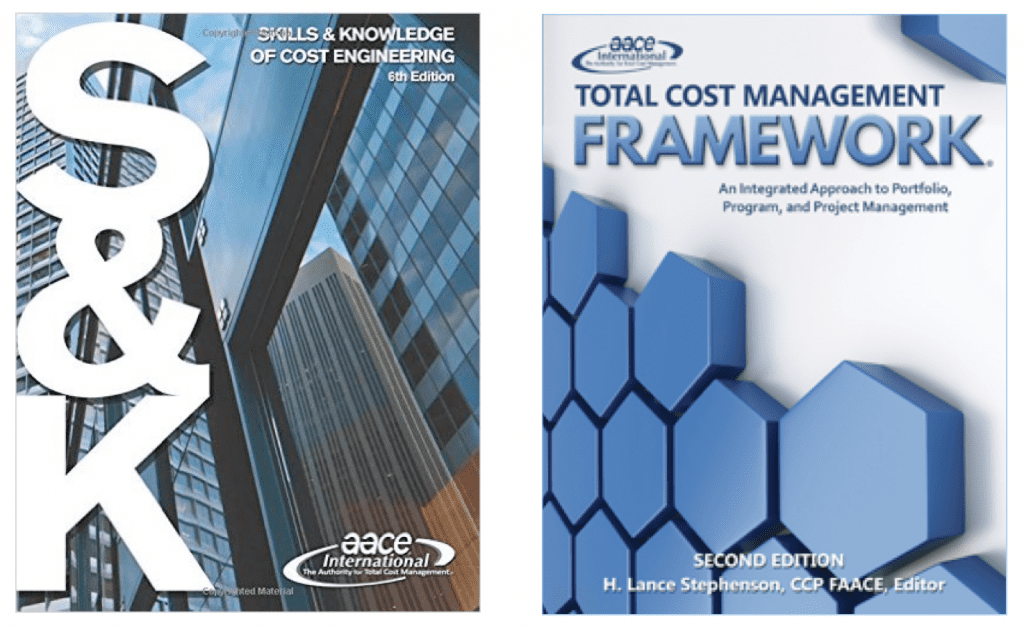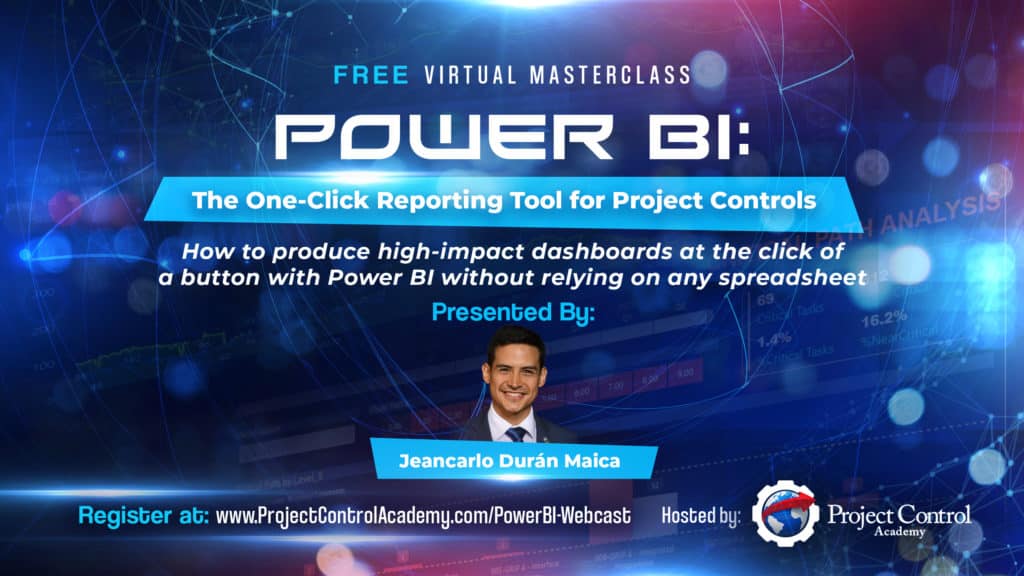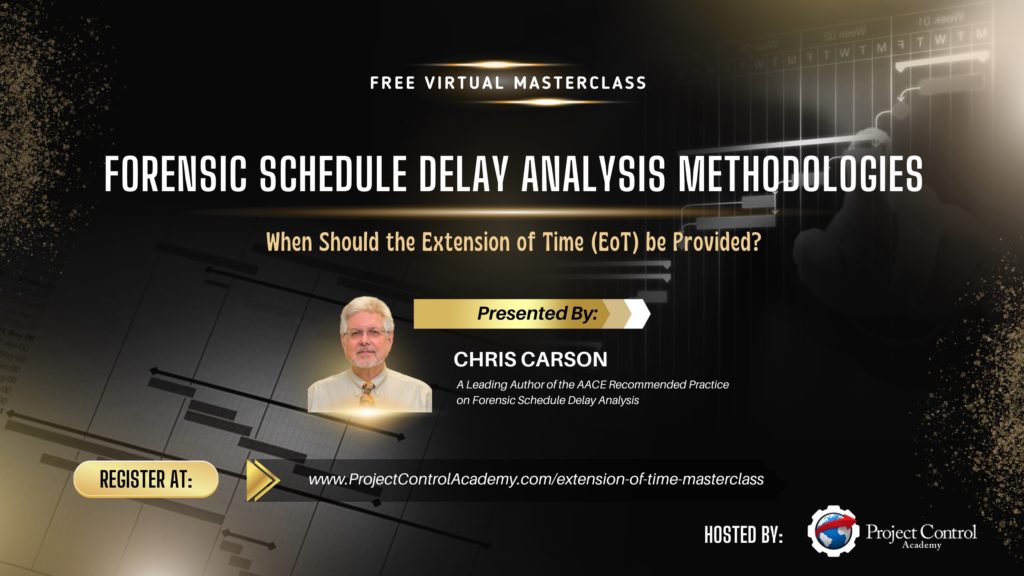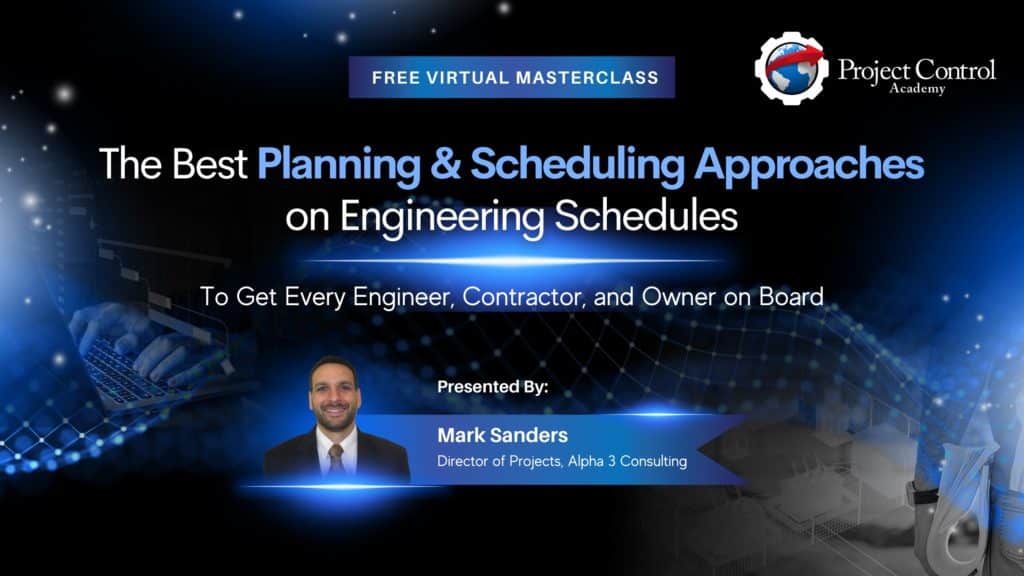Summary:
Have you ever been in a project that finished over budget, and nobody could explain exactly why?
Have you ever seen a cost report in a project that only showed the budget versus the expenditures?
Have you ever published, or seen a cost report, and had no clue what the cost metrics meant?
If you have experienced any of these scenarios, you either had no Cost Controller on your project, or your Cost Controller lacked one of the top 5 essential skills that every Cost Controller must have.
Watch this video to learn what the top 5 skills of a Cost Controller are.
Download the free audio mp3 podcast of this episode on iTunes.
Like this episode? Please share it so others can also benefit from it.
Want more training? Subscribe to Project Control Academy to receive complimentary training videos and resources delivered to your mailbox.
Project Control Quotes to Consider: Join Project Control Academy on Instagram for tons of great quotes.
VIDEO TRANSCRIPT:
Have you ever been in a project that finished way over budget, and nobody could explain exactly why?
Have you ever seen a cost report in a project that only showed the budget versus the expenditures?
Have you ever published, or seen a cost report, and had no clue what the cost metrics meant?
If you have experienced any of these scenarios, you either had no Cost Controller on your project, or your Cost Controller lacked one of the top 5 essential skills that every Cost Controller must have.
If you are someone already in the cost control field, or someone completely new to Cost Control, by the end of this post you will know what are the top 5 skills that you need to possess or improve upon to be an effective Cost Controller.
To be an excellent Cost Controller in a project, you need to master many skills. If you review AACE International’s Recommended Practice on Required Skills & Knowledge of Cost Engineering, you will be amazed at the number of skills and knowledge areas that are listed for a Cost Controller.
In this post, my focus is only on the top 5 key skills for a Cost Controller that I believe are essential based on my own experience as a Cost Controller during my Project Control career.
Ready to know these top 5 skills?
Before revealing the top 5 skills, let’s be clear on the role of a Cost Controller on a project.
The Role of a Cost Controller in a Project
A Cost Controller is responsible for controlling the project costs; This includes planning, developing, controlling, and forecasting the project’s budget.
The goal of a cost controller is to minimize the deviation from the budget and ensure that the project is completed within the approved budget.
Top 5 Skills of a Cost Controller
Skill # 1: Knowledgeable in Total Cost Management Concepts & Terminologies
The first skill that a Cost Controller needs to have is the knowledge of Total Cost Management and Cost Control. This is essential.
The Cost Controllers need to have a fundamental understanding of Cost Management & Control in order to effectively manage the cost of a project. As a Cost Controller, you need to know the concept behind cost accounting, cost classification, cost types, cost development, cost control, change management and the list goes on. You need to have a good understanding of cost management terminologies, the cost management process, and how the cost control function works in a project.
If you are a newbie in Cost Controls, or you are someone who is interested in switching to Cost Controls, the practice standards and guides that I would like to recommend are the following resources provided by the Association for Advancement of Cost Engineering (AACE International):
1. “Skills and Knowledge of Cost Engineering” Handbook is a comprehensive guide in Cost Engineering.
I recommend this guide to anyone in the Cost Management field. No matter if you are pursuing any of the AACE certifications such as CCT, CCP, EVP or not, I still advise you to go through this guide and make yourself familiar with the Cost Management terms and concepts and enhance your fundamental knowledge of Cost Management.
2. “Total Cost Management Framework” is another guide in Cost Management that you can consider.

You can get these guides from either the AACE website or Amazon.
Make sure that you go through these resources and increase your knowledge in Cost Management.
Skill # 2: Knows how to allocate the budget and establish a Cost Baseline
The second skill that every Cost Controller must have is knowing how to allocate the budget, and establish a cost baseline. In fact, this is one of the first tasks that every Cost Controller needs to do in every project.
When a Cost Controller is given a project budget, he is responsible to properly breakdown and allocate the budget, plan out the cost expenditure of the project; how the budget is going to be spent, and establish a cost baseline. The cost baseline will be the base for measuring and monitoring the cost performance and assessing the cost variances.
Although the budget allocation and cost baseline establishment is one of the initial and fundamental tasks of a Cost Controller, I have seen many Cost Controllers who don’t do a good job in cost planning.
For example, in a mid-size project, the budget allocation was done is a way that everyone in the project was charging their time against one line; one budget number; the project number. There was no budget allocation whatsoever.
It was until six months through the execution of the project that the client felt something is not right. The expenditures were rising in every cost report, and the client didn’t know what was going on. They went back to the Project Control team of their contractor and asked for accurate cost performance reports, and especially cost forecasts. That was a big problem because no budget allocation was done from the beginning of the project. Everyone was charging against one budget line item, and there were no means of measuring the cost performance.
To fix the issue, several Project Control Leads were assigned to the project. How on earth could they fix a budget allocation and cost monitoring issue that could have been done right earlier in the project in the first place?! Nothing can be fixed in the middle of the project when something goes like that.
The interesting fact about that project was that the person who was assigned to the project was an intermediate Cost Controller, who’ve been in the cost-control field for a while. However, since the client didn’t have specific requirements for the cost report, he went the easy route and just came up with a one-liner budget allocation and cost measurement. This caused a lot of problems later on. Therefore, as a Cost Controller, you need to be able to allocate the budget properly the moment that you start the project.
Establishing the cost baseline is another important task of a Cost Controller.
In a project that I was involved in, one of our subcontractors didn’t do a good job with cost baselining. Every cost report that the subcontractor issued showed a different budget baseline. The original budget kept changing in every report! It was so confusing to follow the reports and understand their cost performance.
I believe you are convinced now that the budget allocation and cost baselining are essential skills of every Cost Controller. If this is something that you don’t know, make sure that you get involved in projects from the beginning, and learn how to allocate the budget and establish a project cost baseline properly.
Skill # 3: Knows Earned Value Management (EVM) in & out
The third skill of a Cost Controller is knowing Earned Value Management in and out. Earned Value Management (EVM) is a very powerful strategy if you can implement it properly in projects.
If you’re a Cost Controller, I encourage you to learn Earned Value Management, no matter if the organization you are working at, knows anything about EVM, or has the priority of implementing EVM in their projects.
The reason is that Earned Value Management is a very powerful tool for measuring, monitoring, and forecasting the cost and schedule status and performance. If you can implement earned value properly in projects, you can have more accurate forecasts as compared to any other methods.
If Earned Value Management is a skill that you haven’t yet acquired, I highly recommend that you take the time to learn that skill and try to apply it to at least one project and see its impact.
Most people think that Earned Value Management is the application of series of metrics. So, if they can just memorize and understand those metrics, they know Earned Value Management.
The reality is that Earned Value Management is beyond some metrics and numbers. To effectively apply Earned Value Management on your projects, you need to properly implement it from the planning to the execution stage of your projects. You need to know it in and out. By looking at an Earned Value report, you should be able to detect the problems and understand what’s causing such issues.
In short, you need to have a deep understanding of Earned Value Management if you are a Cost Controller.
If Earned Value Management is something that you need to improve upon, I have two excellent resources for you:
There are two comprehensive online EVM training programs that I like to recommend:
Essentials of Earned Value Management, a fundamental deep dive training intensive in Earned Value Management. Check more details here.
Mastering Earned Value Management for Project Success, an advanced level training in Earned Value Management, where you experience implementing Earned Value Management on a sample project from its conception to completion and learn the best practices and tips in every step of the process. Check more details here.
Skill # 4: Can analyze a cost report, detect issues, and effectively communicate the project’s cost performance, issues/ concerns, & recovery plans to the project team
A good Cost Controller is someone who can analyze a cost report, and communicate the result of a cost report properly to the team members.
I have seen many Cost Controllers who do an exquisite job in putting together the data, generate fancy reports, but they cannot communicate the results properly to the team members!
Some cost reports are quite complex, leaving the project team members puzzled at what the report is trying to convey or what the issue might be. A Cost Controller should not expect everyone on the team to have the same understanding and interpretation of a cost report. It is the Cost Controller’s responsibility to effectively communicate the cost results to the project team members, and make them aware of any budgetary issues or any other cost-related issues that they are facing.
Unfortunately, many Cost Controllers don’t take the time to educate the team, or properly communicate the result of their cost reports to the project team. Some Cost Controllers don’t even interpret and analyze their own report. They just issue a cost report and send it out to the project team. They don’t take the time to analyze the report. They get busy gathering the data, putting together a report, and publishing the cost report just to meet the deadline. They either don’t have time to analyze their report, or they don’t know how to interpret and analyze the cost report!
As a Cost Controller, you are dealing with a lot of cost data, numbers, and metrics. You need to be able to analyze the cost report, and effectively communicate the results to the project team members.
Skill # 5: Proficient in Microsoft Excel (or a Cost Control tool)
Cost Controllers should have proficiency in Microsoft Excel, or a cost-control tool/software.
Proficiency in Microsoft Excel is a primary skill of a Cost Controller. The reason is that regardless of the Project Control system or software that you are using, most probably you are exporting the data from the software to generate some reports or graphs in Excel. Some companies don’t even have any cost-control software; their primary tool is Microsoft Excel. Therefore, as a Cost Controller, you need to master your skills in Microsoft Excel. Make sure that you know how formulas work in Excel, how to draw graphs, how to analyze the data in Excel, how to create Pivot Charts, etc.
In summary, there are five key essential skills that you need to master as a Cost Controller.
The first skill is competency in Total Cost Management. You need to upgrade your skills and enhance your knowledge in Cost Management every single day. Second, you need to know how to allocate the budget and establish a cost baseline. Third, you need to be proficient in Earned Value Management. Fourth, you should be able to analyze the reports, and effectively communicate the results to the project team. And finally, you should be proficient in Microsoft Excel and know how to apply it in your projects.
These are the five essential skills that you need to master as a Project Cost Controller.

If you like to learn more how to succeed as a Cost Controller or how to succeed as a Project Controller, make sure that you check out the Project Control Success Roadmap Training.
If you have any question about this post, please submit your questions and comments down below. I will make sure that I respond to as many questions as I can.
If you like this post, please share it with others. And, don’t forget to hit the ‘Like’ button.
About the Author, Shohreh Ghorbani
 Shohreh is the founder and director of Project Control Academy, the leading provider of comprehensive online training programs in Project Controls. Shohreh has served tens of thousands of professionals and several international corporations build their technical Project Controls knowledge and shave off years of trial and error in learning the vital skills in controlling their projects.
Shohreh is the founder and director of Project Control Academy, the leading provider of comprehensive online training programs in Project Controls. Shohreh has served tens of thousands of professionals and several international corporations build their technical Project Controls knowledge and shave off years of trial and error in learning the vital skills in controlling their projects.
Shohreh is a licensed project management professional (PMP) recognized by Project Management Institute (PMI) and holds a Master of Science in Industrial Engineering.
Connect with Shohreh via Facebook, Linkedin, Google+, Instagram, iTunes, YouTube



















